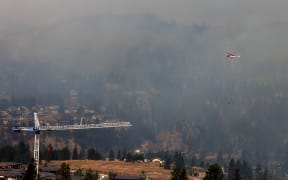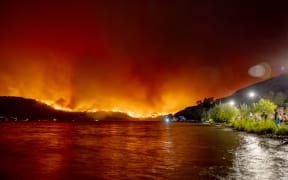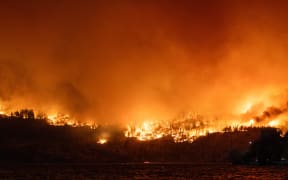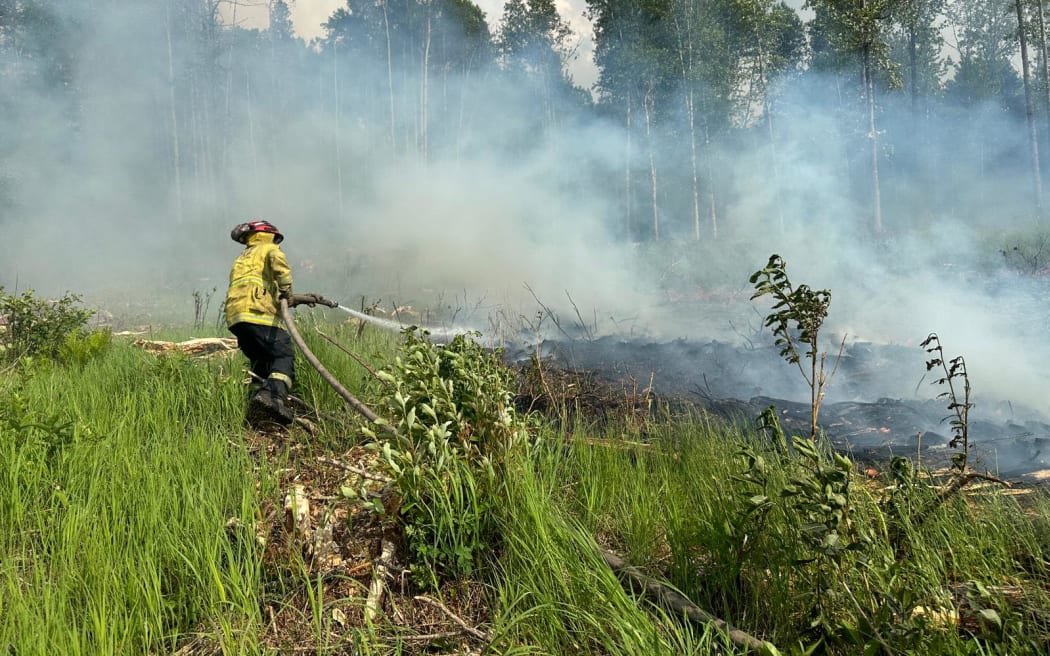
New Zealand has sent dozens of firefighters to Canada to deal with the country's wildfires emergency. Photo: Supplied / Fire and Emergency NZ
New Zealand firefighters describe days turning into night and swamps on fire while they were battling wildfires in Canada.
Wildfires have led to tens of thousands of people evacuating, homes have been destroyed and lives lost.
This year, New Zealand has sent more than 92 firefighters to help fight the wildfires, with the latest Delta deployment recently returning.
Fire and Emergency agency representative Dave Woon remembered the skies on the day crews were evacuated from the fireground. He was in charge of looking after the New Zealand crew during their time in Canada.
"Twelve o'clock in the afternoon was as bright as day, just a little bit of smoke. By two o'clock, it was pitch black and smoke. Honestly it was like 10 o'clock at night."
Every day, it took half an hour via helicopter to travel to the fireground from the remote town of Fort Smith, on the border of Northwest Territories and Alberta.
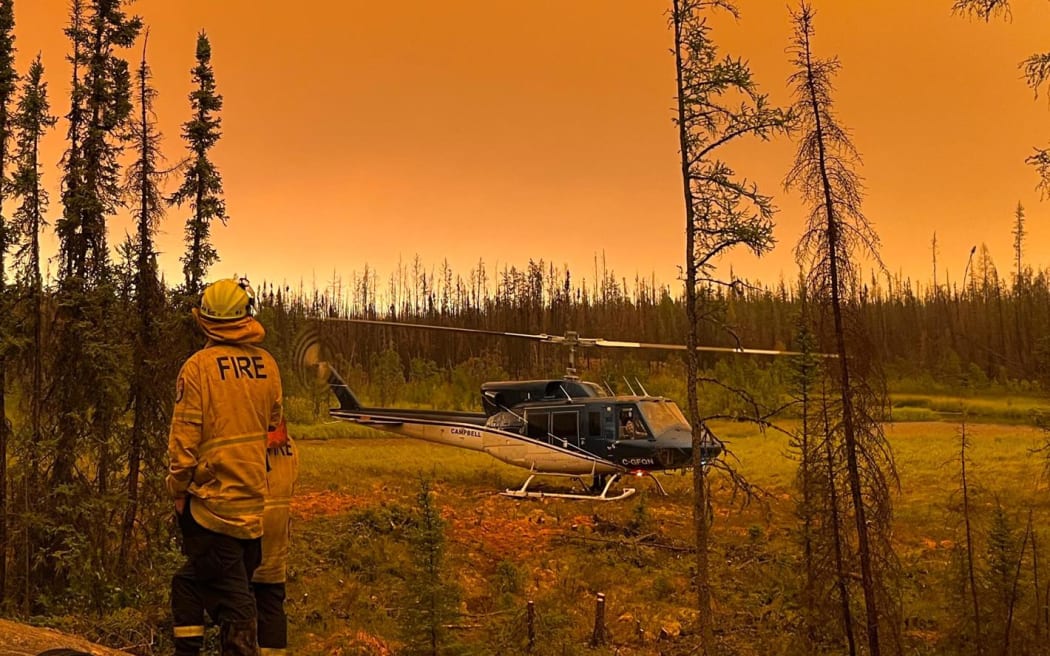
Photo: Supplied / Fire and Emergency NZ
Crews spent their days mopping up hotspots along the edge of the fire among rocky outcrops, swamp, spruce and pines, and supporting helicopter crews.
"On that flight, you could see these huge fires around us by the plumes of smoke going 30,000-40,000 feet into the air.
"So it's quite an eerie feeling to see this, literally hundreds of kilometres of forest, of aspen and jack pine with these huge columns of smoke coming out."
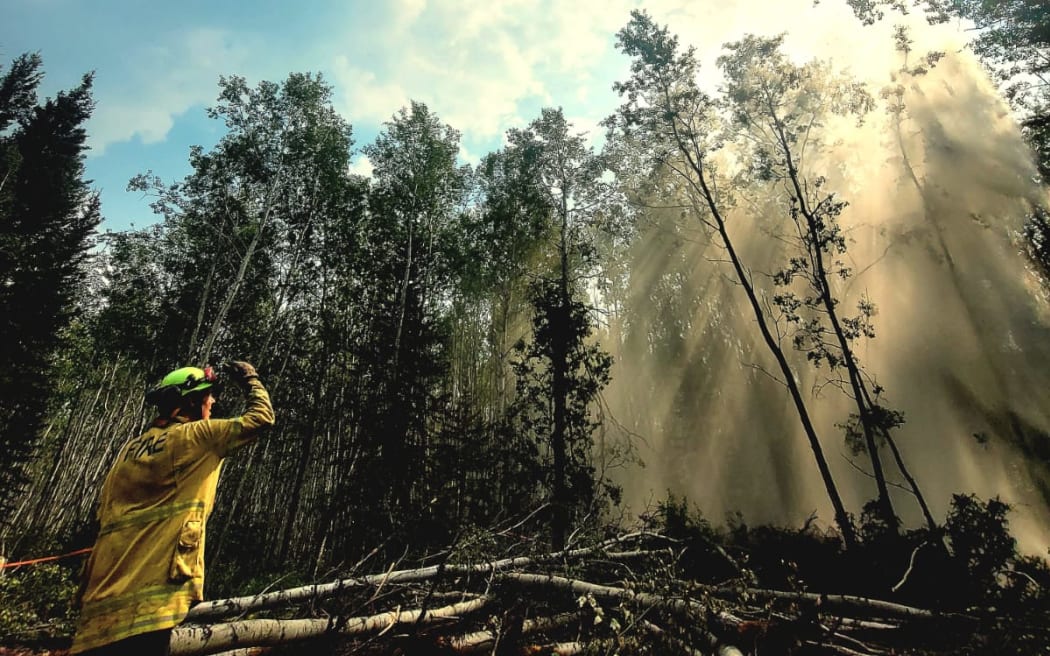
Sometimes, huge columns of smoke were visible coming from the forests. Photo: Supplied / Fire and Emergency NZ
It was hard to describe the immensity of what has happened, fires so large that Yellowknife, the capital of Northwest Territories, was evacuated, he said. The mornings were often the best time to fight the fires, before conditions worsened.
"High temperatures and low relative humidity and high winds, and that will just stir the place up ... I guess the term we use is spicy fireline where it was not a nice place to be and you'd pull the troops out."
Hot, dry weather had dried out the surfaces of swamps, and meant smouldering could easily become flames, he said. While firefighting was not glamorous, he said it was rewarding, challenging and a way to support and protect others.
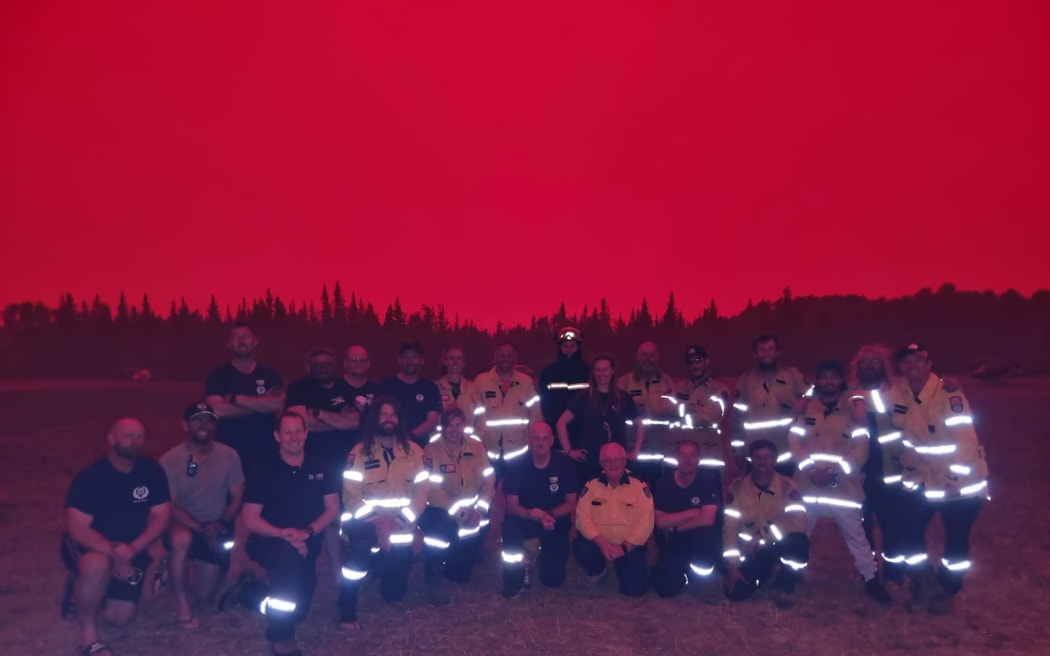
Some of the Kiwis who helped out. Photo: Supplied / Fire and Emergency NZ
Canterbury-based volunteer firefighter Emily Sutton said the helicopters would sometime land in blackened swamps.
"We had one day where it was about three o'clock in the afternoon and it went pitch black and the skies went red. It was quite an incredible experience to see but pretty sad at the same time knowing that it's coming towards you."
It was not just fires they had to be careful about.
"I must have stood on a wasp nest and the wasps just swarmed up my leg and I ran towards my strike team leader Steve and he started whacking my legs and getting the bees off and stuff. I ended up getting about 29 stings."
She was airlifted out, but returned to the firefront the next day.
Her task force leader, Steve Gatenby, has fought fires in Aotearoa and Australia, but this was his first deployment in Canada.
"There were lots of warning signs that Canada was in for a big fire season so even back in May, we had a notification to say be ready, just start doing your pack test and getting your medicals."
It was methodical work, he said.
"It can be frustrating 'cause you think you've got an area well and truly under control and then when you get to a certain time in the afternoon when the weather changes it gets much warmer and the humidity drops, and all of a sudden, little hotspots will flare up again so it's a matter of being very methodical, going through every single hotspot, turning over all of the soil and putting water on it."
He was grateful to meet firefighters from all over the world and learn new skills.
"When you look around the airport and you saw the local people there, obviously had been evacuated, they had their pets. It's quite sobering to see them, knowing that they were not too sure what they were going to see when they returned."
They all thanked their families and workplaces for allowing them to go for roughly five weeks to help fight the fires.
Firefighters are now turning their attention to the upcoming fire season in Aotearoa.
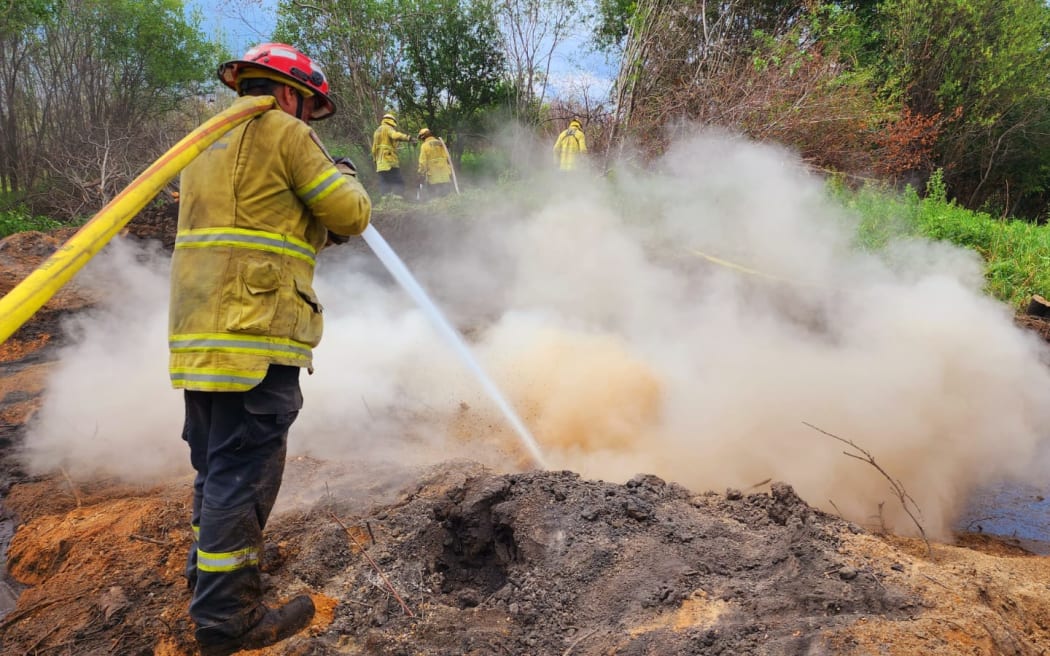
Photo: Supplied / Fire and Emergency NZ

